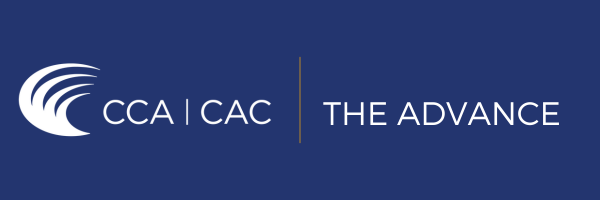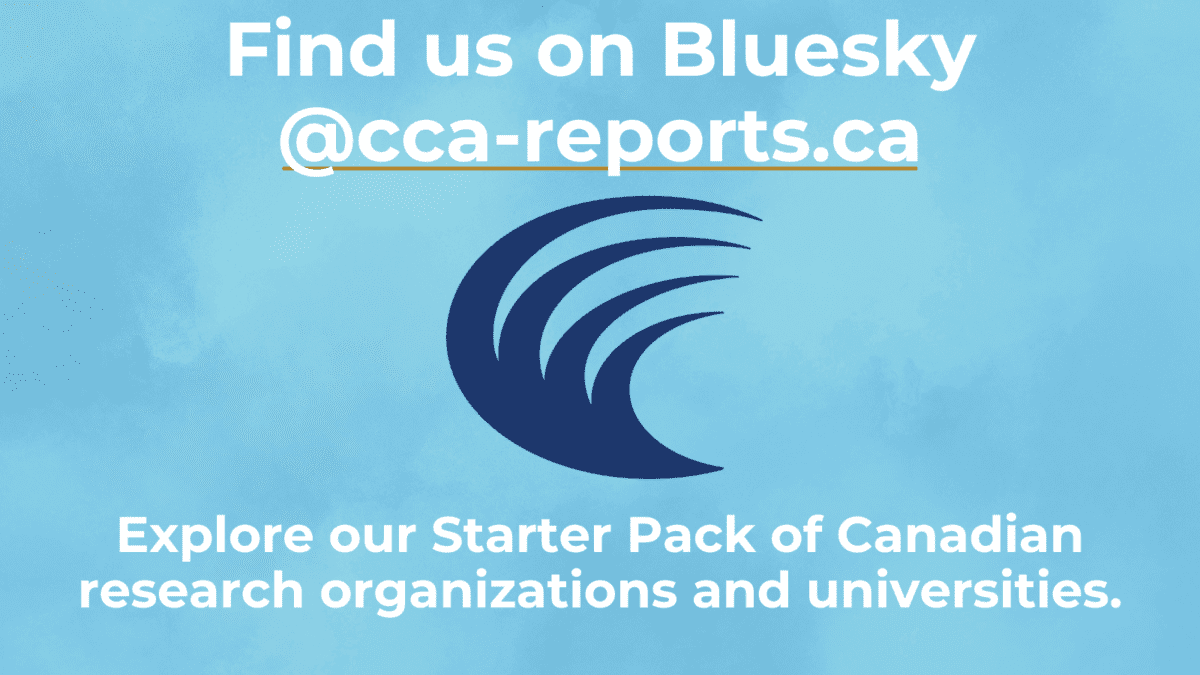
Welcome to The Advance, the newsletter of the CCA. Want to help us promote evidence-informed policy in the public interest? Feel free to forward this newsletter to a friend or colleague. If you haven’t subscribed yet, you can sign up here. Le français suit.
IN THIS EDITION:
- Progress, pitfalls, and gaps in advancing EDI in post-secondary research
- The CCA at CSPC
- Readings on Canada’s agriculture innovation potential, preparing for the next health emergency, the possible futures of the Online Harms Act, and more
- Find us on Bluesky

Progress, pitfalls, and gaps in advancing EDI in post-secondary research
In Equity, Diversity and Inclusion in the Post-Secondary Research System, a multidisciplinary panel of experts details the recent history of transformative change spurred by EDI initiatives—from new funding programs that support Indigenous research and reconciliation to bridge programs that can increase the enrollment, retention, and graduation rates of students from underrepresented groups.
“Post-secondary institutions should be leaders in modelling, developing, and implementing EDI measures and cultural change for the sake of their own success and sustainability, as well as for their unique influence on the world,” writes Dr. Wendy Rodgers, president of the University of Prince Edward Island and chair of the CCA’s Expert Panel on EDI Practices for Impactful Change. “Continuing to privilege access to post-secondary education, research, and knowledge, as well as limiting its reach and impact, impoverishes the post-secondary sector.”
The report from the CCA’s expert panel also identifies ongoing barriers to participation, challenges posed by ideological and political pressures, and future research directions that may help close gaps in current EDI data. “People have to believe that the data isn’t just going to be collected and put in a box and nothing happens,” Juliet Daniel, a professor of biology at McMaster University, co-founder of the Canadian Black Scientist Network, and a member of the CCA panel, told University Affairs. “They need to feel that the data is collected and it’s going to lead to transformative change.”
Lasting and meaningful change requires resilience. In its report, the expert panel provides a number of actions it hopes might ensure the continuation of EDI work. Following publication, Dr. Arig al Shaibah, associate vice-president of equity and inclusion at the University of British Columbia, called the report “a singular, contemporary and comprehensive evidentiary summary for the Canadian context.”
Equity, Diversion and Inclusion in the Post-Secondary Research System is available here.

Readings
- The CCA is thrilled to welcome four new members to our Board of Directors: Brian Fleck, Professor, Faculty of Engineering, Mechanical Engineering Department, University of Alberta; Catherine Middleton, Professor, Ted Rogers School of Information Technology Management, Toronto Metropolitan University; Hasna Rouighi, Director, Office of Innovation, Ministry of Health and Social Services, Government of Québec; and Christine Thomas, Vice-President, Governance and Legal Counsel, Canadian Medical Association. Read about their appointments.
- “If there’s any sector of the economy where we should be a global leader, it should be agriculture,” write Evan Fraser, Lenore Newman, and Rene Van Acker in The Globe and Mail. The authors are all members of our Expert Panel on Atypical Food Production Technologies for Canadian Food Security, which will release a new report on November 27.
- Dr. Kelly Cobey, director of the University of Ottawa Heart Institute’s Metaresearch and Open Science Program, received the John Maddox Prize, which “recognizes researchers who stand up and speak out for science and evidence-based policy.” Cobey is a member of the CCA’s Expert Panel for Balancing Research Security and Open Science for Dual-Use Research of Concern.
- Health Canada released a report calling on Canada to “act now to be prepared for the next health emergency.” The recommendations of the Expert Panel for the Review of the Federal Approach to Pandemic Science Advice and Research Coordination include “a more sophisticated national risk assessment and preparedness planning process” and “a more robust science advisory system that is ready to immediately activate in response to an emergency,” among others.
- Dimensions—a Tri-agency pilot program to “help address systemic barriers and foster culture where EDI is embedded across all aspects of research”—has announced plans for its next phase.
- And Bill C-63, known as the Online Harms Act, “appears to be stalled in the House of Commons,” Michael Geist, the University of Ottawa’s Canada Research Chair in Internet and E-commerce Law, writes at his blog. For his Law Bytes podcast, Geist spoke with Emily Laidlaw, a member of the CCA’s Expert Panel on Digital Public Safety, about the bill’s possible futures.
